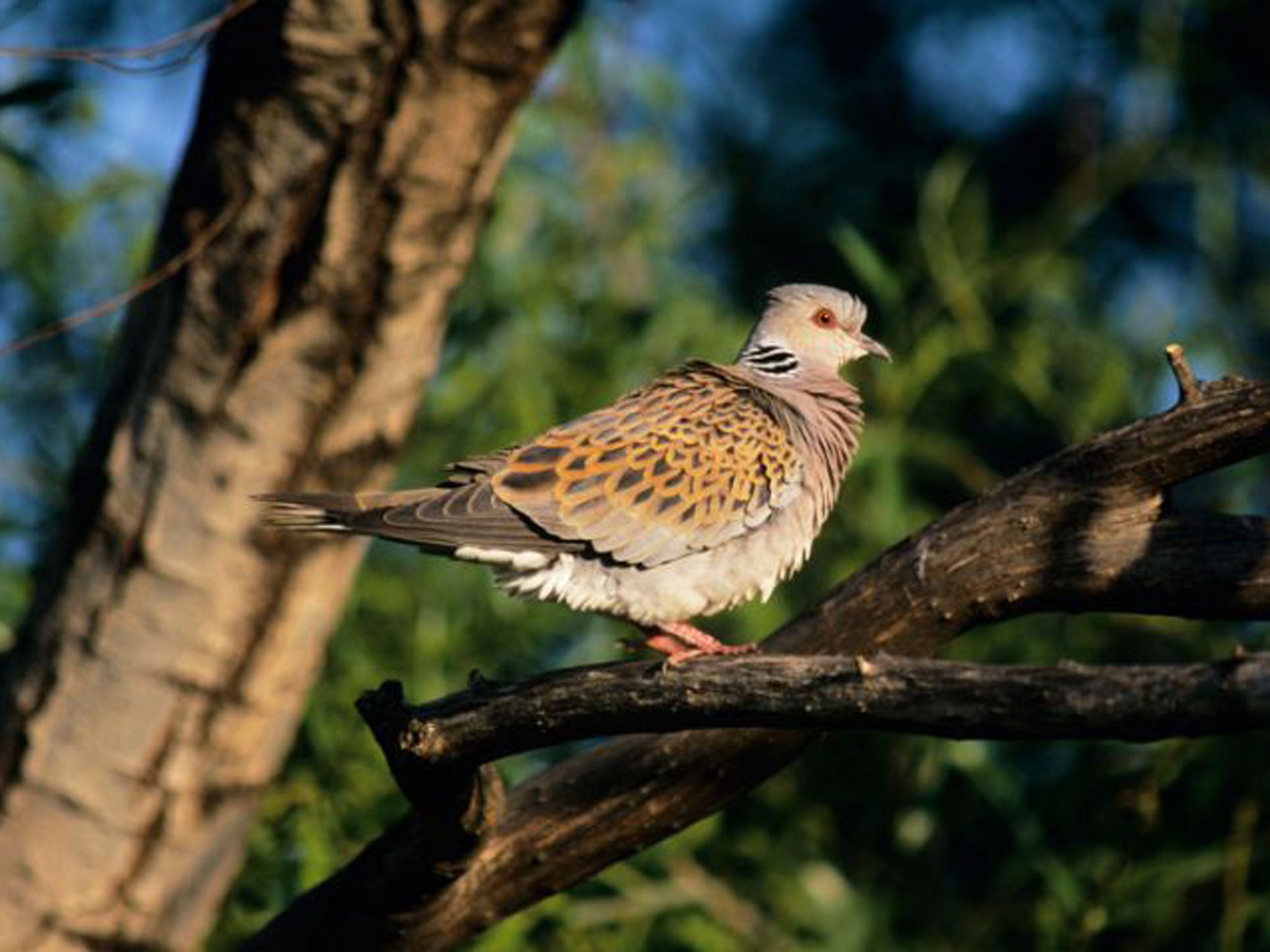Nature Studies: The turtle dove is on the brink of extinction in Britain
Intensive farming, hunting, and parasites have turned the loveliest member of the pigeon family into our fastest-declining bird

Extinction is one of the great tragedies of our times. But can we actually stop a wild creature disappearing once it is truly on the slide towards oblivion? Last week I watched a group of people trying hard to do just that.
The creature concerned is the turtle dove (Streptopelia turtur), the loveliest member of the pigeon family, and a bird prominent in folklore for thousands of years: its gentle purring call is mentioned in the Bible and its reputation as a symbol of fidelity has been celebrated by everyone from Chaucer to Buddy Holly.
But in Britain, it is now our fastest-declining bird: just in the lifetime of one of today’s middle-aged birdwatchers, it has dropped in numbers by a staggering 96 per cent. In 1970 there were probably about 250,000 pairs of turtle doves nesting in Britain every summer (they spend the winter in Africa, like swallows), but now there are only between 8,000 and 9,000 pairs and the bird is halving in numbers every six years. The speed of its decline is unheard of. The turtle dove is on the high road to extinction in Britain; it may be gone within a decade.
Unless, that is, a determined group of conservationists can save it. The staff of Operation Turtle Dove – a rescue operation set in train by the Royal Society for the Protection of Birds with a small group of other conservation bodies (Natural England, Conservation Grade and the Pensthorpe Conservation Trust) – is trying to work out the causes of the decline, and find answers.
They already think they know the main cause: intensive farming. Turtle doves traditionally fed on seeds from cornfield wild flowers, many of which have disappeared from crop fields that are now sprayed heavily with herbicides. There is simply not enough food available for them to complete the multiple breeding attempts they need to make each summer to keep their numbers up.
There may be two other drivers of decline: being hunted on their migratory journeys to and from Africa, especially in France and Spain; and the effects of a parasite, trichomonas, which is known to infect many of the birds. But research has not yet pinned down exactly how important these factors are.
The shortage of food, however, is well established, and so the main conservation effort is focused on getting farmers to plant special turtle dove plots – there’s a Government grant for it – with a mix of wild flowers that will provide seed throughout the summer.
Last week I spent a morning visiting farms in East Anglia, now the core of the turtle dove’s range on Britain, with four members of Operation Turtle Dove, and found farmers very willing to help.
Jane Thomson, who farms 150 acres amid the coastal heaths of Suffolk, stood in the middle of her own turtle dove plot and told me how much she loved the birds. “The call is absolutely marvellous,” she said. “It’s the sound of summer.” As she spoke a turtle dove was sitting on a telephone wire in front of her farmhouse, resplendent in its exquisite plumage of chestnut and black mottled wings with dark pink breast.
But can the conservationists save the turtle dove? Can they halt a headlong decline which appears quite unprecedented? Tara Proud, the RSPB scientist who is the project manager, is confident. “I don’t think we would get up in the morning if we didn’t think we could make a difference,” she told me.
I very much hope so. Three weeks ago a group of scientists produced a well-publicised research paper suggesting that the Earth was in the middle of a sixth great extinction of living species, to compare with the five great calamities of prehistory when most of life died (the last one being the asteroid which wiped out the dinosaurs 65 million years ago.) Let’s hope that the loss of the turtle dove from Britain is not one of our own contributions to this melancholic phenomenon.
Join our commenting forum
Join thought-provoking conversations, follow other Independent readers and see their replies
Comments
Bookmark popover
Removed from bookmarks